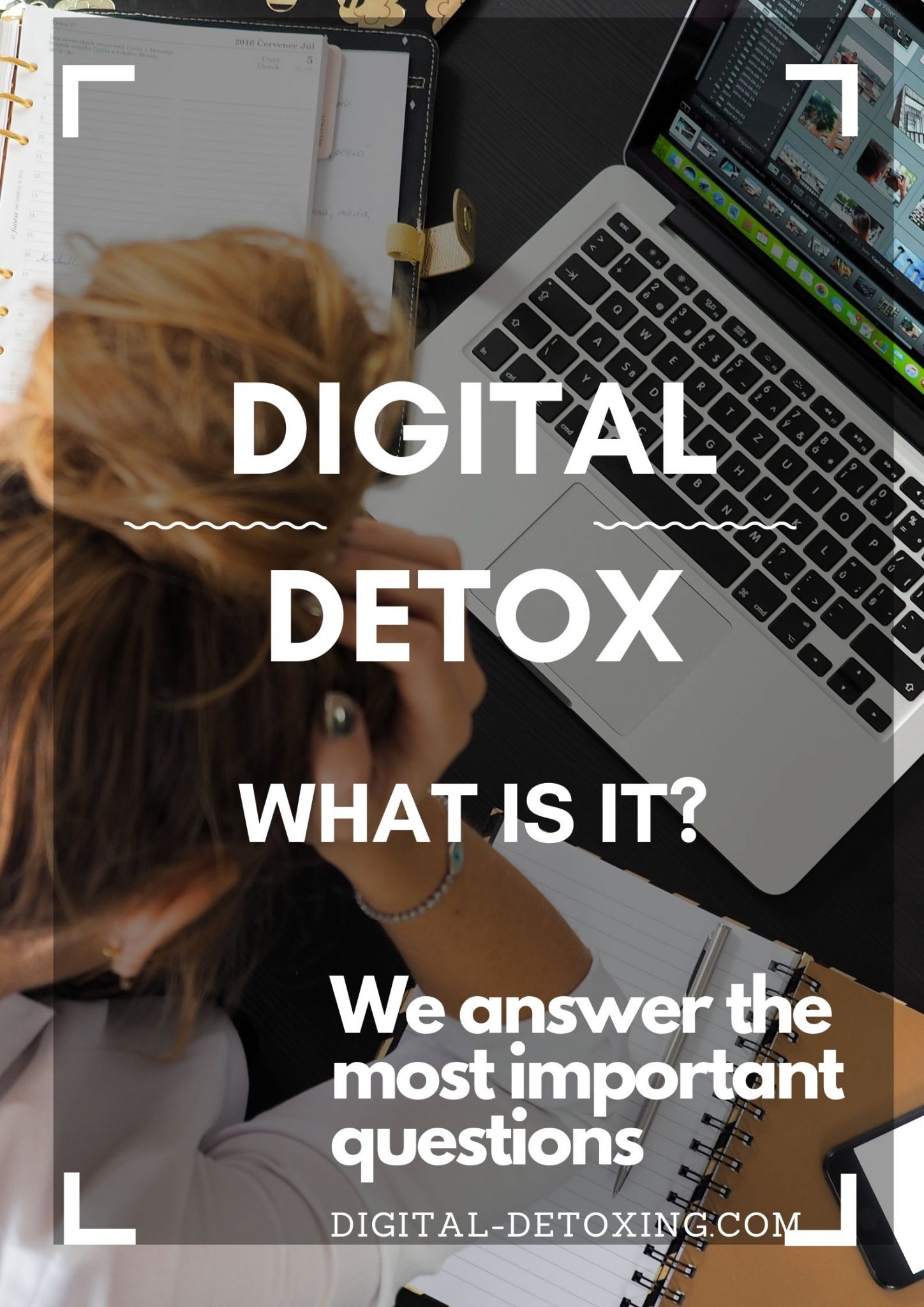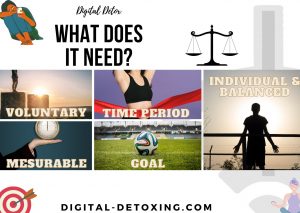Digital Detox Experience, what is it, and where does it come from?
(6 min reading time, 15th July 2022, Christian Hitzl)
Collecting Information and presenting them in a short way is one of the main goal from Digital Detoxing. In this article, we are going to answer the following questions:
Where does Digital Detox come from?
How to define Digital Detox?
Why people doing a digital detox?
Who needs a digital detox, and who does not?
What are the digital detox experiences?

Where does Digital Detox come from?
Terms like disconnecting, timeout, unplugging, abstinence or digital break are being used as an explanation of digital detox (Brown and Kuss, 2020). Each phrase describes a temporary renunciation of digital devices. This can include all devices connected to the internet, like cell phones, tablets, laptops, smart TV, smartwatches etc. The invention of the term Digital Detox happened in 2012 by Felix and Dean as they assigned it to mental health (Varma, 2018).How to define Digital Detox?
Oxford Dictionaries (2019) describes Digital Detox as the following:“A period of time during which a person refrains from using electronic devices such as smartphones or computers, regarded as an opportunity to reduce stress or focus on social interaction in the physical world.”The goal for a digital abstinence is to reduce stress, to prevent a digital overuse, to boost self-optimization and to reduce radiation (Genner and Süss, 2017, p. 112). When doing a digital detox, in the first step, you should be thinking about the following points:

- Voluntary, intrinsic motivation
- Measurable, to check success
- Period, from time to time or set limits
- Goal, to follow up in the future and to see development
- Individual, for the maximum of health orientation
- Balance, it is not about prohibiting it is about digital balance
Why people doing a digital detox?
- Enhance social competency
- Digital wellbeing
- Connection in Real-Life
- Stress reduces, Balance finding
- Avoids illnesses, like depression
- Active, more outgoing and open for new things
Who needs a digital detox?
The most important criteria are the active use of the internet. People who are not using Social Media Networks (like Instagram, Facebook, Snapchat etc.…), people who are not having a smartphone or not even using Computers, for this target group, no digital detox is needed. For almost all other people, a detox can help to deal with the Digital vs. Analog balance. This is also defined as digital mental health or digital wellbeing. Of the information we have collected, those are groups that require digital detox the most:- Office staff or office workers
- Workers with human responsibility at work
- Home Office worker
- People with Obesity and/or overweight
- Insecure people with less social competency
- People living in big cities
- Depressed and Stressed people
- People with sleeping problems
What are the digital detox experiences?
Our Team tried to collect as many digital detox experiences as possible. After each enumeration, you can find the references. Simply click on the link, to get a deeper knowledge of each digital detox experience.- Productivity, less distraction and more focus (Stefanie Steinert, LinkedIn)
- Greater Conversation, deeper family time with eye contact (Mindy at Belly Mind Soul)
- Physically more active, instead of social media the time was used for more physical action (Sarah Lee in Taste of Home)
- Inspiration, time used for reading books, newspaper or magazines (Liz Fletcher on we-worldwide)
- Conscious decision-making, learn to be in charge of your actions (AJ Jones)
- Being present, higher quality time with people around (Emilia Orthmann)
Digital Detox Experience
For more information, we have listed our references. If you want to send us a mail, please to so at info (at) digital-detoxing.com.
References:
Brown, L. and Kuss, D.J. (2020) ‘Fear of Missing Out, Mental Wellbeing, and Social Connectedness: A Seven-Day Social Media Abstinence Trial’, International Journal of Environmental Research and Public Health, 17(12). doi: 10.3390/ijerph17124566
Varma, H. (2018) ‘Digital Detox: The Art of Switching Off’, INROADS- An International Journal of Jaipur National University, 7(1and2), p. 8. doi: 10.5958/2277-4912.2018.00023.1
Oxford Dictionaries (2019) DIGITAL DETOX | Definición de DIGITAL DETOX por Oxford Dictionary en Lexico.com y también el significado de DIGITAL DETOX, 10 March. Available at: https://www.lexico.com/definition/digital_detox (Accessed: 10 March 2022).
Genner, S. and Süss, D. (2017) ‘Socialization as Media Effect’, in Rössler, P., Hoffner, C.A. and Zoonen, L. (eds.) The International Encyclopedia of Media Effects: Wiley, pp. 1–15.
Radtke, T. et al. (2021) ‘Digital detox: An effective solution in the smartphone era? A systematic literature review’, Mobile Media & Communication, 205015792110286. doi: 10.1177/20501579211028647